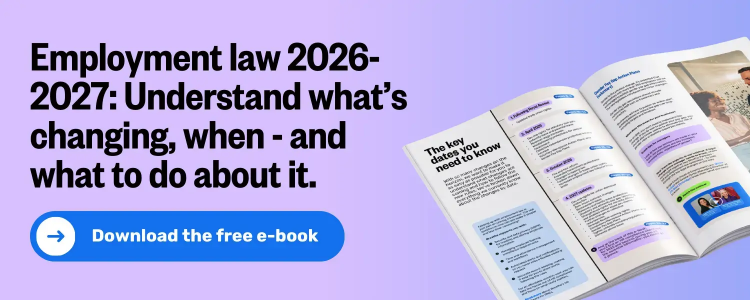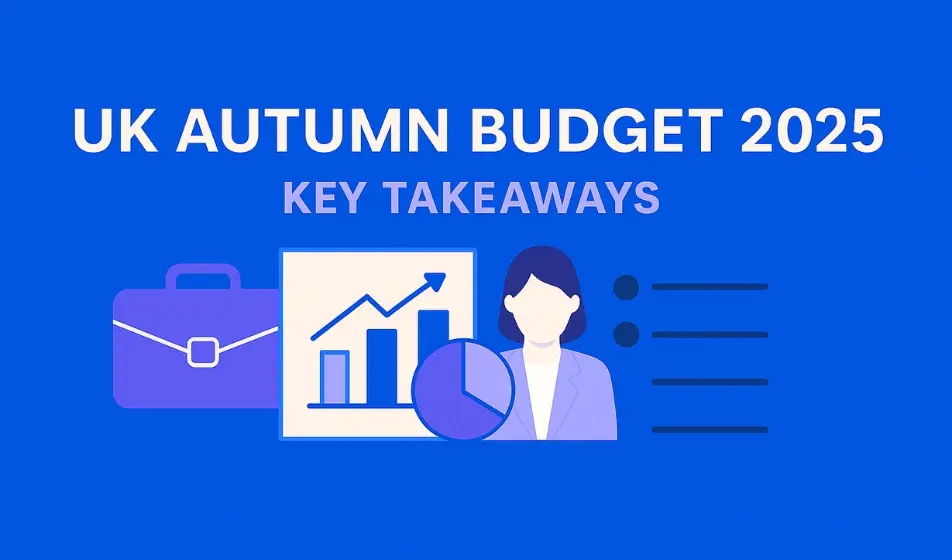3. Day-one employment rights
Currently, when employees start a new job, they have to wait up to two years before they’re entitled to full statutory employment rights. This includes sick pay, unpaid parental leave, paid paternity leave and paid bereavement leave.
Under the new bill, all employees will be entitled to these rights from day one. This change will affect all employers.
Since this is the biggest change in the Employment Rights Bill, the Government has announced that it won’t apply until Autumn 2026 at the earliest. This will give businesses time to prepare policies and budgets for new employment rights requirements.
📋 Day-one rights - how to stay compliant
Update contracts to specify that statutory sick pay, unpaid parental leave, paid paternity leave and paid bereavement leave will apply from the first day of employment.
4. Unfair dismissal
Protection from unfair dismissal is another statutory right that employees currently don’t get until up to two years of employment.
Originally, the Government planned to include this within the raft of day-one rights we discussed in the last section. But after pressure from businesses, they’ve adjusted the policy.
Now, the draft bill specifies that new employees will be subject to a statutory probation period, before unfair dismissal protections will apply. This will likely be between six and nine months.
📋 Unfair dismissal rights - how to stay compliant
When the probation period is confirmed, you’ll need to update contracts to reflect the new probation period.
5. Zero-hours contracts
The Employment Rights Bill has also announced significant zero-hours contract changes. In fact, they will be banned unless the employee chooses to stay on them.
When the bill becomes law, employees will be legally entitled to request a fixed-hours contract, based on hours worked over a 12-week reference period.
📋 Zero-hours contracts - how to stay compliant
While no immediate changes are needed, you may choose to proactively update contracts or phase out zero-hours contracts. When the law comes into effect, you will legally have to grant any fixed-hours contract requests.
6. Statutory sick pay
Currently, employees are only eligible for statutory sick pay (SSP) from the fourth consecutive day of an ongoing illness. This will be extended to include all sick days, regardless of how long they go on for. This is in addition to SSP being a day-one working right.
📋 Statutory sick pay - how to stay compliant
Review your employment contracts and ensure any references to statutory sick pay apply from both the first day of employment and the first day of illness.
Read more: What is Statutory Sick Pay (SSP) and how does it work?
7. Fire and rehire
Fire and rehire practices will also be banned in most cases. Under new rules, it will only be permitted when there are no other options to protect the businesses from insolvency. In this case, the employer will have to demonstrate evidence of financial difficulties and prove the change is unavoidable.
📋 Fire and rehire - how to stay compliant
No contractual or compliance changes are required.
8. Trade union rights
Alongside several changes to trade union rights, the Government has also announced one policy that will affect all organisations, regardless of size. All employers will no be legally required to inform workers of their right to join a trade union.
📋 Trade union rights - how to stay compliant
The easiest way to comply is to update all employment contracts to specify an employee’s right to join a trade union.
Get prepared for legal changes in 2025 and beyond
The eight changes we discussed in this blog are by far the most far-reaching reforms that employers have faced for a generation. But even then, they aren’t the only new legal requirements we can expect in the next few years.
In fact, there are also several new compliance measures around Diversity, Equity and Inclusion and Flexible Working Rights.
In our recent eBook, we discussed the full range of upcoming changes in full and published a timeline of all upcoming dates that we currently have available.







